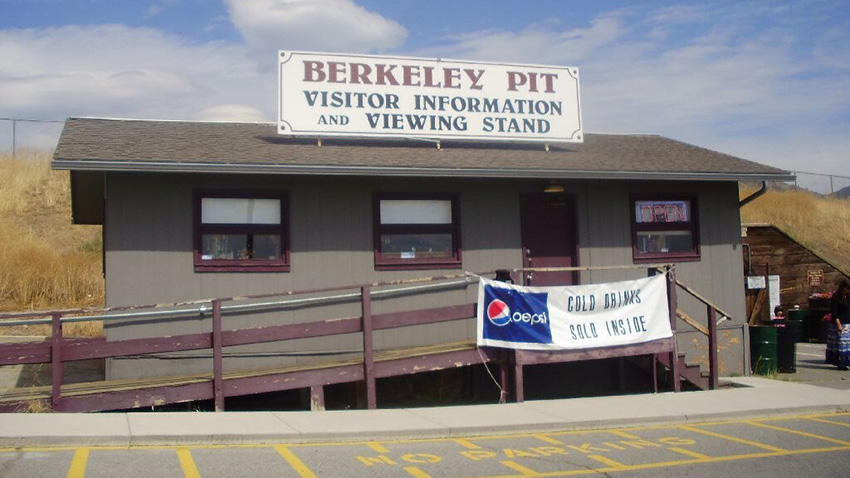Photo: sporst, CC BY 2.0 , via Wikimedia Commons
In Butte, Montana, there’s a pit of poison, a former open copper mine that’s been left to sit and swallow geese. For two dollars and fifty cents, tourists can walk across a tunnel to look into it. I’ve stopped at the pit during a road trip to visit my father. He has cancer. He has had cancer for at least the last year and probably longer but we have only known about it for four months. The copper creates teal pools of metal amidst water reflecting rocks and clouds. It’s ethereal and also heavy, like an opaque and sluggish aurora borealis, as if hummingbird feathers were magnified and anchored in paint. Thousands of geese have died here. They drink the water and their throats burn, their bodies fill with metal. The city has tried to keep the birds at bay with lasers and sirens and guns, anything to frighten them away. But still, they flock to the poison. At the overlook, I let my eyes rest open, enjoy not looking at a road, enjoy the glisten of chemicals and water and pupils free from focus. The pit is beautiful. The pit feasts on earth and birds but it is beautiful. When I bring my eyes back to focus, they settle against the rocky ledge still holding it all in, still gaping open.
Tina Kimbrell is from rural Missouri and now lives in eastern Iowa where she works from home in the educational technology industry. She received an MFA from the University of Washington. Her work has appeared in X-R-A-Y, The Citron Review, and The Good Life Review

